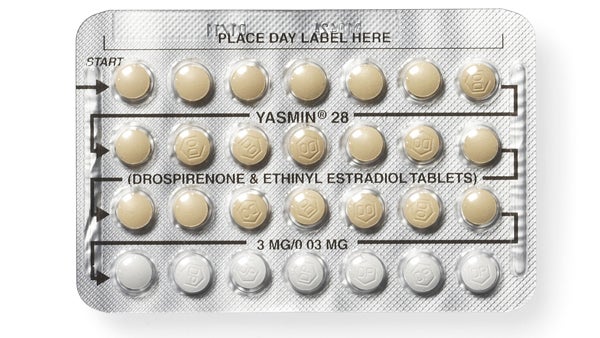Affordable Care Act brings free birth control, but not free choice

A package of birth control pills is shown in this undated image. (AP Photo/Bedsider.org, file)
When Planned Parenthood advertised free birth control through the Affordable Care Act, I was thrilled. I thought: This is just what women need. On the contrary, what I found is that the bureaucrats involved place a higher value on money than on effective health care.
The following is a work of opinion submitted by the author.
When Planned Parenthood advertised free birth control through the Affordable Care Act, I was thrilled. I thought: This is just what women need. On the contrary, what I found is that the bureaucrats involved place a higher value on money than on effective health care.
I was 18 years old and in college when I first discovered the mess that happens when a woman is prescribed the wrong birth control.
A doctor prescribed me the cheapest option possible. But the $5 pills pumped too much estrogen into my tiny, 115-pound body, causing me to cry every day and feel as though I couldn’t control myself in any capacity. I had never had hormonal imbalances before, and I was absolutely miserable.
The next doctor I saw told me that the first one was crazy to put me on the cheap stuff — even if it did save a broke college student some money. She gave me a prescription that worked perfectly, with no side effects whatsoever.
I’ve tried other brands of the same pill, but I’ve stuck with my brand since then, requesting it specifically so pharmacists didn’t give me a generic version. Why fix it if it’s not broken?
But around August, before free birth control through the ACA went into effect, my pharmacy started switching me to another generic brand.
Bad medicine
I was wary, given my problems in the past, but I know generics are required by the FDA to hold the same dosage of active ingredients as the brand-name option, so I gave it a whirl — to my great regret.
I felt unreasonably emotional, I gained 10 pounds, my period was completely random, and I had skin problems. I hadn’t experienced skin problems even as a teenager! Doctors and pharmacists advised me to stayed on this pill for three months — but none of the the side effects let up.
All of the generic’s active ingredients were the same as my preferred brand, but I discovered that about half the inactive ingredients were not. My doctor said that probably shouldn’t matter, but thought maybe the way it’s made negatively reacts with my body.
A WebMD blog post written by a doctor in response to claims similar to mine didn’t offer much of an explanation. Maybe the absorption rate was to blame? But an FDA study of absorption rates said that the difference was only about 3.5 percent.
Most of the user reviews I found for this generic brand complained of the same things I was experiencing — and several users had made the exact same switch as me. And I noticed that these accounts increased noticeably in reviews after January 2013.
Neighborhood pharmacy to the rescue
So I convinced my pharmacist to special order my preferred brand. I even had my doctor write me another script saying my needs were brand specific. But after about a month, without explanation, the pharmacy told me they could no longer order it for me. They just said they couldn’t get it at any of their branches.
I quit taking birth control all together.
But I had to go back on it when I was diagnosed with an ovarian cyst. My doctor said the pill would help me get rid of the cyst and ensure I didn’t get more. But there was no way I was taking that generic stuff again.
I confirmed that my insurance company would cover my preferred brand. And I saw a specialist, who encouraged me to find another pharmacy that would give me the brand I wanted. She explained that once a woman gets a cyst, she’s likely to get them more often, so skipping the pill wasn’t an option.
Unfortunately, none of the large pharmacies in any other part of the city would honor my choice. But I did find a small, locally owned pharmacy two blocks from my house that would special order my brand of birth control for me.
The pharmacist there said he suspected the generic was cheaper for the big pharmacies and therefore cheaper for the insurance companies that foot the bill. I had accepted the possibility that I’d have to pay for my birth control — but to my surprise, my insurance covered me.
Free birth control seems perfect, but somehow either the government, the insurance companies, or the pharmacies will find a way to cause trouble. They’re placing money before health. If other women are experiencing issues similar to mine, what’s the point of offering free birth control if quality and personalized medicine aren’t put before everything else?
—
Lane Blackmer is a frequent contributor to NewsWorks.
WHYY is your source for fact-based, in-depth journalism and information. As a nonprofit organization, we rely on financial support from readers like you. Please give today.

